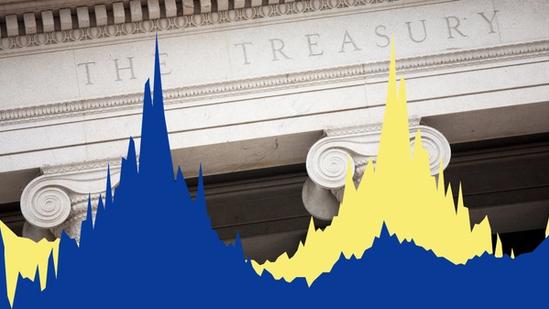Japan’s Rich are Rethinking how They Invest
They have an extra $1.4 trillion to invest. What will they do with it?


APAC’s slumbering giant seems to be waking up. But what does this mean for Japan’s wealthiest individuals?
- Japan’s wealthy class is growing rapidly, with nearly 1.5 million high-net-worth households in 2021, an 83% increase from 2011.
It’s rare to see a billionaire advertising their wealth openly in Japan, but Yusaku Maezawa doesn’t seem to worry about it.
The 48-year-old serial entrepreneur has never been your typical staid businessman. Rather than get a job after college, he instead flogged his CD collection and began importing US records for Japanese listeners.
In 2000, he signed a record deal and released an album all while running a growing ecommerce company. By 2018, he had pivoted to the apparel business, launching the custom-fit clothing brand Zozo, which he later sold stakes in to SoftBank and Yahoo! Japan. Today, his net worth is estimated to be $1.7bn.
This money has gone towards things most of us could only dream about. It has funded trips to outer space — in 2021, Maezawa traveled to the International Space Station — as well as the USD 57.3 million purchase of a prized Basquiat painting (which Maezawa later sold for USD 85 million).
More recently, Maezawa has been posting on Instagram about his latest cash-guzzling hobby: Gran Turismo racing. He seems to be excelling at it, having finished in third place at the 2024 Ferrari Challenge in Shizuoka, at the foot of Mount Fuji.
Maezawa is one of a kind — at least for now. As millionaires and billionaires become younger and more plentiful in Japan, other adventurous elites may well emerge.

Rich data
Japan is home to a sizeable — and growing — wealthy class. The number of households with high-net-worth or ultra-high-net-worth status stood at nearly 1.5 million in 2021, an 83% increase from the 810,000 that existed in 2011. The country ranks fourth in the world for the number of UHNWIs it has produced, with 14,940 people holding assets of $1.4 trillion between them according to Wealth-X.
Older folk still make up the majority of Japan’s rich, but rising interest in entrepreneurialism, along with an ongoing generational wealth transfer, means these demographics are shifting. In 2023, 33-year-old Shunsaku Sagami was named Japan’s youngest billionaire by Forbes, having built a net worth of $1.9 billion via his AI-powered startup, M&A Research Institute.
Money managers from around the world are now vying for the attention of these younger wealthy individuals, with Japan’s rich expected to invest an additional $1.4 trillion from current levels over the next decade. The question is: what will they do with their money?
“Everyone looking at this big pie from outside of Japan wants to stick their finger in, but it’s not that easy,” says Martial Meyssignac, the managing director of Alpadis Group Japan, which represents multinational clients in Japan.

A new wealth era
Wealthy Japanese households have long allured money managers, who see their preference for holding on to cash as a source of untapped potential. Attempts to get conservative Japanese investors who enjoy the safety of their savings accounts to take risks have previously hit a wall, but for younger individuals with a more global outlook, investment preferences are becoming more ambitious.
“My community and my friends are done preserving money,” says Reiko Saito, a CEO, consultant and business owner based in Tokyo. “We had our money in the bank and the interest rates never went up.” Saito says equities and foreign exchange are common investment choices in her social circle, with people moving on to other asset classes as they become more familiar with what’s out there. “In Japan, the culture of investment is very low,” she says. “We don’t have the education, we don’t have the custom, we don’t have the parents with experience [investing]. It’s a big hurdle. We’re not being raised to invest.”
A lack of sophisticated financial education combined with a culture of privacy around wealth has also made it difficult to understand where the very wealthy are putting their money, or how much liquidity they even have to invest. Some highly engaged investors are breaking that mold, though.
Banjo Yamauchi is one. The 31-year-old Nintendo heir set up family office Yamauchi No. 10 in 2021, describing it to Bloomberg as a “mind-blowing” wealth management project. The firm’s website beeps and boops like a Nintendo game as readers scroll through its origin story and investment thesis. The firm manages over $1.5 billion in assets and says it takes a long-term approach to investments, according to a March 2023 Reuters report.
“Ultra-high net worth individuals are smart and they know what they are investing in,” says Shin Nakano, a Tokyo-based director in EQT’s private wealth team. “They make investments on their own and they don’t rely on distributors — they create a company and invest from this vehicle. They’re not looking at the economy to make their investments.”

Moving with the crowd
Experts ThinQ spoke to expect the evolution of Japan’s wealth management market to create something of a snowball effect, where increased announcements of new family offices, private wealth services and mergers and acquisitions deals will improve understanding of alternative investments. In turn, banks, securities firms and other distributors that work with UHNWIs are more likely to recommend these asset classes to their clients. “When I visited last year, a lot of [distributors] were not very open to private equity or even semi-liquid private equity,” says Sueann Yeo, head of APAC private wealth at EQT. “Fast-forward to today, everyone is talking about alternatives. There is this pent-up demand because sophistication was on the low side, but now awareness has increased.”
Global asset managers are already generating headlines about real estate opportunities they have found in Japan, having spent a combined $2 billion on hotel deals in 2023. EQT, meanwhile, has acquired a majority stake in Japanese software startup HRBrain, demonstrating alternative exit paths for young startups (and their investors).
Change is happening, but decades of caution among Japan’s UHNWIs won’t change overnight. “Over the past 10 years, the venture capital business has been growing in Japan and many rich people invest in VC and PE funds,” says Kent Ishizaki, managing director of Tokyo consulting firm Weiden Haus. “Young rich people like venture capital, they like business. But the older people are, the better they like real estate.”
How they spend it: the view from a family office
PM Enterprise is a Japan-based single-family office that also operates funds open to co-investment from other family offices and wealthy individuals. Founder Pierre Mauriès shares his views on how investment preferences are evolving among Japan’s UHNWIs.
How will a transfer of wealth from older to younger generations change Japan’s investing landscape?
Wealth is slowly but surely being transferred to the younger generation, and that creates a noticeable shift in investment attitudes. [Older] generations worked to preserve the wealth of their grandparents. When I look at the younger generation, it’s clearly about growing and deploying that wealth. Once you inherit $1 billion from grandma or grandpa, if there’s no corporate entity presenting it, what this younger generation does is create that entity, create a bit of marketing about themselves, and then they go about finding investments in fintech, deeptech, space technology. They want to be part of that because it’s fun, it’s sexy, it’s new and it’s global. It opens a world that they have been completely shut off from for an entire generation.
What is appetite like among HNWIs and UHNWIs for private assets?
Money is raised from personal networks and communities of family offices that were not active investors in this sector, but came because it helped them diversify. Younger family offices are also more inclined towards new technologies and sustainable innovations compared to previous generations, who were much more focused on stock markets and real estate. There is a lot of capital flowing into [renewable energy], and there’s never been as much investment in technology — the momentum is gigantic and private investments are active in deeptech [sectors such as AI and blockchain].
How are changes in Japan’s wider economy influencing investment preferences?
Japan has had an enormous increase in private wealth over the past decade, mainly driven by macroeconomic factors. [Because] we are seeing market stability — good growth, low inflation, and strong frameworks for things like AI [innovation] — that provides us and other family offices, and high net worth individuals, with a steady foundation to flush capital with more confidence and risk bearing than in the last two decades. There’s growing interest in global investment and there is an understanding from the younger generation of family offices or those who have inherited from their parents or grandparents that Japan has the capacity to be a global power.
What makes Japan a unique market for private investments?
Japan is a story of private markets, and the opportunities lie in mergers and acquisitions, private equity and venture capital. Ninety-eight percent of corporates are SMEs, and 70% have a CEO who is 70 or older. That creates massive issues when it comes to [succession]. A lot of family members don’t want to take on that burden, so there’s a lot of opportunity for private mergers [and acquisitions].
ThinQ is the must-bookmark publication for the thinking investor.



